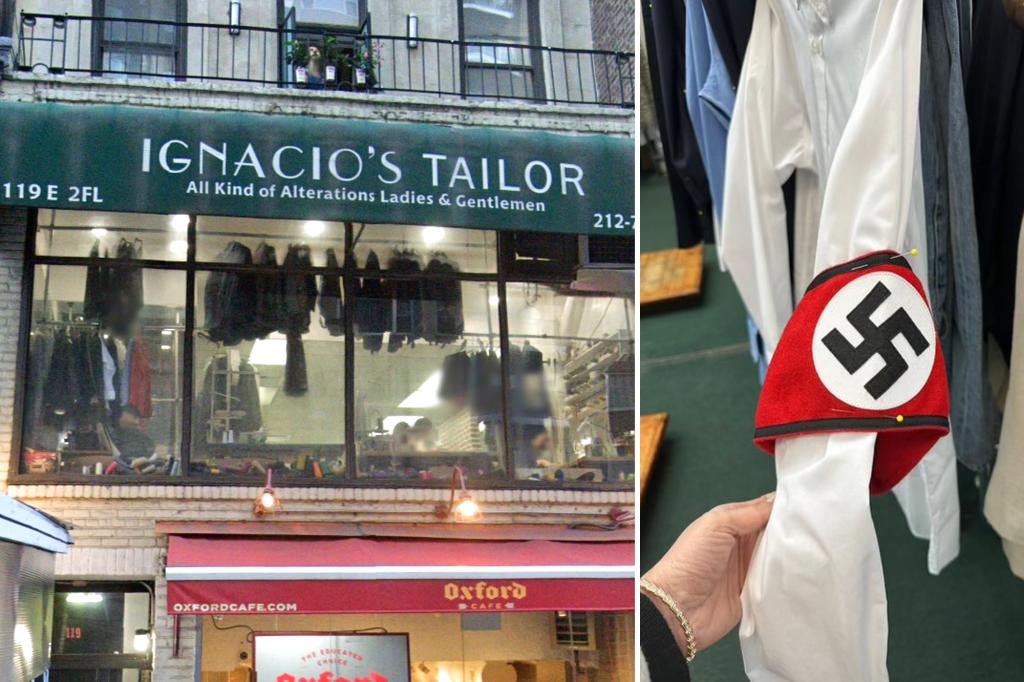The presence of a Nazi swastika displayed openly at a popular tailor shop on the Upper East Side sparked outrage among customers and neighbors. The management of Ignacio’s Tailor shop issued an apology, explaining that an employee who was unaware of the meaning of the symbol accepted a white shirt with a swastika armband for dry cleaning. When the managers were made aware of the offensive garment, they called the police and promptly disposed of it, denouncing it as a hateful situation aimed at harming the business.
City Councilwoman Julie Menin shared a picture of the swastika on social media after being alerted by a constituent who had taken a picture of the symbol at Ignacio’s Tailor shop. Menin confirmed with the office of the tailor shop that they would not be tailoring the item and that the police had been informed. Jewish activist Lizzy Savetsky condemned the store for accepting the order to dry clean a swastika, calling it a black and white issue of good versus evil. She emphasized the significance of the symbol in relation to the genocide of her people and expressed her outrage on Holocaust Remembrance Day.
Despite the condemnation from some customers and activists, others believe that the tailor shop may have been the victim of a sick prank, rather than being complicit in displaying a hateful symbol. Ignacio’s Tailor shop, which boasts a prestigious client list and has been in business for 20 years, was bombarded with negative reviews and angry phone calls after the incident involving the Nazi swastika. The manager of the shop, Jorge Hernandez, explained that the symbol was brought to his attention by a customer and that he promptly contacted the police upon discovering it.
While the presence of the Nazi symbol at Ignacio’s Tailor shop has sparked widespread outrage and condemnation, a granddaughter of Holocaust survivors who visited the shop expressed her belief that the tailor may have been targeted with a hateful stunt. She referenced a fictional situation from the television show “Curb Your Enthusiasm,” in which a similar scenario involving a Ku Klux Klan robe and a dry cleaner was portrayed. The customer suggested that the incident at the tailor shop may have been orchestrated to send a message and provoke hurtful reactions, echoing the sentiments of others who believe the situation was a set-up.
The swift reaction to the Nazi swastika incident at Ignacio’s Tailor shop highlights the sensitivity and ongoing impact of hate symbols and the atrocities they represent. The involvement of local authorities, activists, and customers in denouncing the display of such symbols demonstrates a united front against hatred and discrimination. The incident serves as a reminder of the importance of vigilance and prompt action in confronting expressions of hate and intolerance in communities, even in unexpected places like a neighborhood tailor shop. Ultimately, the response to the incident reflects a shared commitment to combating hate and upholding the values of tolerance and respect in society.













